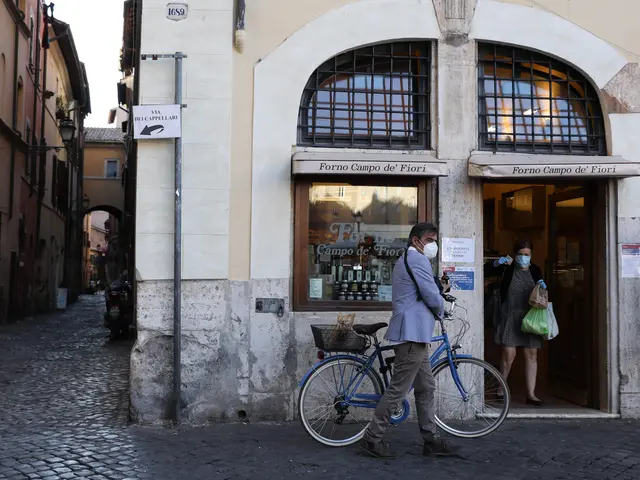After weeks of social isolation, many European countries, which believed the coronavirus curve has flattened, are now relaxing control measures.
On Wednesday, Italian Sports Minister Vincenzo Spadafora announced gyms and fitness centers may reopen on May 25.
The announcement came amid the country's improving epidemic situation, with the number of active infections down by 2,809 to 78,457 on Wednesday. According to the Civil Protection Department, recoveries have now made up over 50 percent of all cases.
On May 4, the country partially lifted a nationwide lockdown imposed on March 10, allowing manufacturing, construction and wholesale sectors to resume business. Retail shops, museums, galleries and libraries will reopen from May 18, and bars, restaurants, hairdressers and beauty salons from June 1.
France registered on Wednesday a total of 21,071 patients hospitalized for COVID-19 infections, down by 524, with 2,428 in need of life support, down by 114. The country on Monday started gradually lifting its lockdown.
With the positive development in containing COVID-19, Switzerland announced on Wednesday its plans to reopen its borders with France, Germany and Austria on June 15.
Also on Wednesday, the European Commission offered a tourism and transport package, providing guidance for European Union (EU) member states to gradually lift the internal travel restrictions and reopen tourism.
The package included an overall strategy towards future recovery, a common approach to restoring free movement within the EU, a framework to support the gradual reestablishment of safe transport, a recommendation aiming to help protect consumers' rights concerning canceled trips due to the pandemic, and criteria for restoring tourism activities while ensuring health safety.
While tentatively easing restrictions to bring life back to normal, many European countries are also calling for deeper cooperation in the global anti-epidemic fight, especially on researches for effective treatments and vaccines.
On Wednesday, Portuguese President Marcelo Rebelo de Sousa stressed the current situation requires "a real start in the European soul" and an EU with "de facto solidarity" to fulfill the dream of its founders.
Echoing the president, Prime Minister Antonio Costa said "the EU's response cannot be tailored to each country, (and) it must be the same response for all countries."
Also on Wednesday, Andrei Baciu, state secretary of the Romanian Health Ministry, said "the fight against this virus requires a coordinated international response, solidarity and commitment to reinforce our public health sectors and to mitigate the social-economic impact."
"Sharing experiences and lessons learned is an essential part of future updates of our national strategic plans to contain the COVID-19 pandemic," Baciu said.
On May 4, European Commission President Ursula von der Leyen hosted an online coronavirus global response pledging event, which secured 7.4 billion euros (8.07 billion U.S. dollars) in pledges from donors worldwide, including a pledge of 1.4 billion euros by the EU's executive arm.
Noticing that the United States was absent from the event, European countries have criticized Washington's absence in the international efforts against the disease.
"It is a pity the U.S. is not a part of it. When you are in a crisis, you manage it and you do it jointly with others," said Norwegian Prime Minister Erna Solberg.
Slamming Washington for stigmatizing other countries and suppressing the anti-epidemic efforts of the World Health Organization to divert attention, Zivadin Jovanovic, former foreign minister of Yugoslavia, said the attempt "will only backfire and undermine national and global efforts to improve prevention and establish control over COVID-19."
(CGTN)
 简体中文
简体中文

